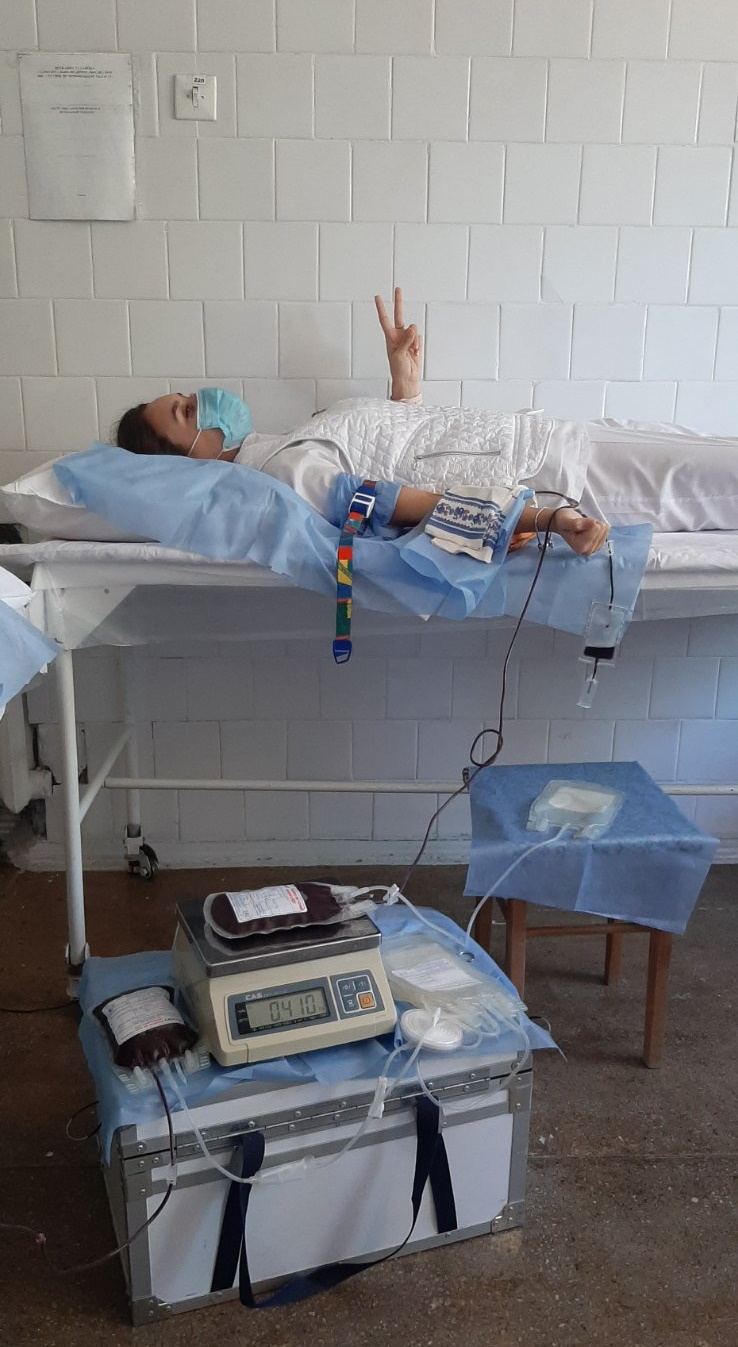14.11.2022
World Diabetes Day is celebrated annually on November 14. It was introduced in 1991 by the International Diabetes Federation and the World Health Organization. The date was chosen in recognition of the merits of one of the discoverers of insulin, Frederick Bunting, who was born on November 14, 1891.Diabetes mellitus is one of the triads of diseases that most often lead to disability and death (atherosclerosis, cancer, diabetes mellitus). Diabetes mellitus increases mortality by 2-3 times and reduces life expectancy. Worldwide, more than 200 million people have diabetes. In Ukraine, 1 million 400 thousand people with diabetes are registered, of which about 190 thousand patients are insulin-dependent. In the State Institution, "TMA of the Ministry of Internal Affairs of Ukraine in Chernivtsi region" as of 03.10.2022, 90 patients with diabetes mellitus are registered in the dispensary, 4 of them are insulin-dependent.
Diabetes mellitus (DM) is an endocrine disease characterized by chronic elevation of blood sugar levels due to absolute or relative insulin deficiency. The disease leads to disorders of all types of metabolism, and damage to blood vessels (heart, eyes, kidneys), the nervous system, as well as other organs and systems.
Distinguish:
1. Insulin-dependent diabetes (type 1 diabetes).
2. Insulin-independent diabetes (type 2 diabetes).
3. Secondary (or symptomatic) diabetes mellitus.
4. Diabetes of pregnant women.
The main cause of type 1 diabetes is an autoimmune process caused by a malfunction of the immune system, in which the body produces antibodies against pancreatic cells that destroy them. The main factor that provokes the occurrence of type 1 diabetes is a viral infection (rubella, chickenpox, hepatitis, mumps, etc.) against the background of genetic predisposition to this disease.
The causes of secondary (symptomatic) diabetes can be pancreatic diseases; diseases of the endocrine system (metabolic disorders, eating disorders); hereditary predisposition; exposure to drugs or chemicals, etc.
Symptoms of diabetes mellitus:
- thirst (patients can drink 3-5 liters or more of fluid per day);
- rapid urination (both during the day and at night);
- dry mouth;
- general and muscle weakness;
- increased appetite;
- itching of the skin (especially in the genital area in women);
- drowsiness increased fatigue;
- poorly healing wounds;
- sharp weight loss in patients with type 1 diabetes mellitus;
- obesity in patients with type 2 diabetes mellitus.
To diagnose diabetes mellitus, the following tests are performed:
- blood glucose test: fasting blood glucose content is determined in capillary blood (fingerstick blood);
- glucose tolerance test: about 75 g of glucose dissolved in 1-1.5 glasses of water is taken on an empty stomach, then the blood glucose concentration is determined after 0.5 and 2 hours;
- urine test for glucose and ketone bodies: detection of ketone bodies and glucose confirms the diagnosis of diabetes;
- determination of glycosylated hemoglobin;
- determination of insulin and C-peptide in the blood: in the first type of diabetes, the amount of insulin and C-peptide is significantly reduced, and in the second type, values within the normal range are possible.
Treatment of diabetes mellitus includes:
- special diet: -it is necessary to exclude sugar, alcohol, syrups, cakes, cookies, and sweet fruits. Food should be taken in small portions, preferably 4-5 times a day;
- the daily use of insulin (insulin therapy) - is necessary for patients with type I diabetes and with the progression of type II diabetes; - use of tablet medications that help lower blood sugar levels.
Complications of diabetes mellitus:
- cardiovascular diseases (vascular atherosclerosis, coronary heart disease, myocardial infarction)
- atherosclerosis of the peripheral arteries, including the arteries of the lower extremities; microangiopathy (damage to small vessels) of the lower extremities; diabetic retinopathy (decreased vision);
- neuropathy (decreased sensitivity, dryness and peeling of the skin, pain, and cramps in the limbs);
- nephropathy (excretion of protein in the urine, impaired kidney function);
- diabetic foot - diseases of the feet (ulcers, purulent-necrotic processes) against the background of damage to peripheral nerves, blood vessels, skin, and soft tissues;
- various infectious complications (frequent pustular skin lesions, nail fungi);
- comas (diabetic, hyperosmolar, hypoglycemic).
To prevent the development of complications of diabetes, constant treatment and careful monitoring of blood sugar levels are necessary! Patients with diabetes must be registered with an endocrinologist at the place of residence!
In our city, the Chernivtsi Regional Endocrinology Center is located at 50 Yuriy Fedkovycha Street. You can take a sugar level test at the nearest medical institution. Also, anyone can take an evidence-based online test to determine the individual risk of type 2 diabetes diabetes.phc.org.ua - both independently and during an appointment with their family doctor. This test is part of the Unified clinical protocol of primary and secondary (specialized) medical care "Type 2 diabetes mellitus", approved by the Order of the Ministry of Health №1118, and therefore it can be used in medical practice by any doctor. Those who have confirmed diabetes can receive the necessary treatment. "Any person in need of medical care, regardless of whether they have a signed declaration or not, can contact a family doctor at the nearest medical institution and receive a prescription for the necessary medicines for diabetes through the program "Affordable Medicines".
Remember that your doctor can advise you in detail about the risks associated with diabetes, as well as, if necessary, prescribe additional tests for diagnosis and share tips for prevention.
Self-control and accurate implementation of the doctor's recommendations will avoid or significantly slow down the development of complications of the disease!

(с) 2024